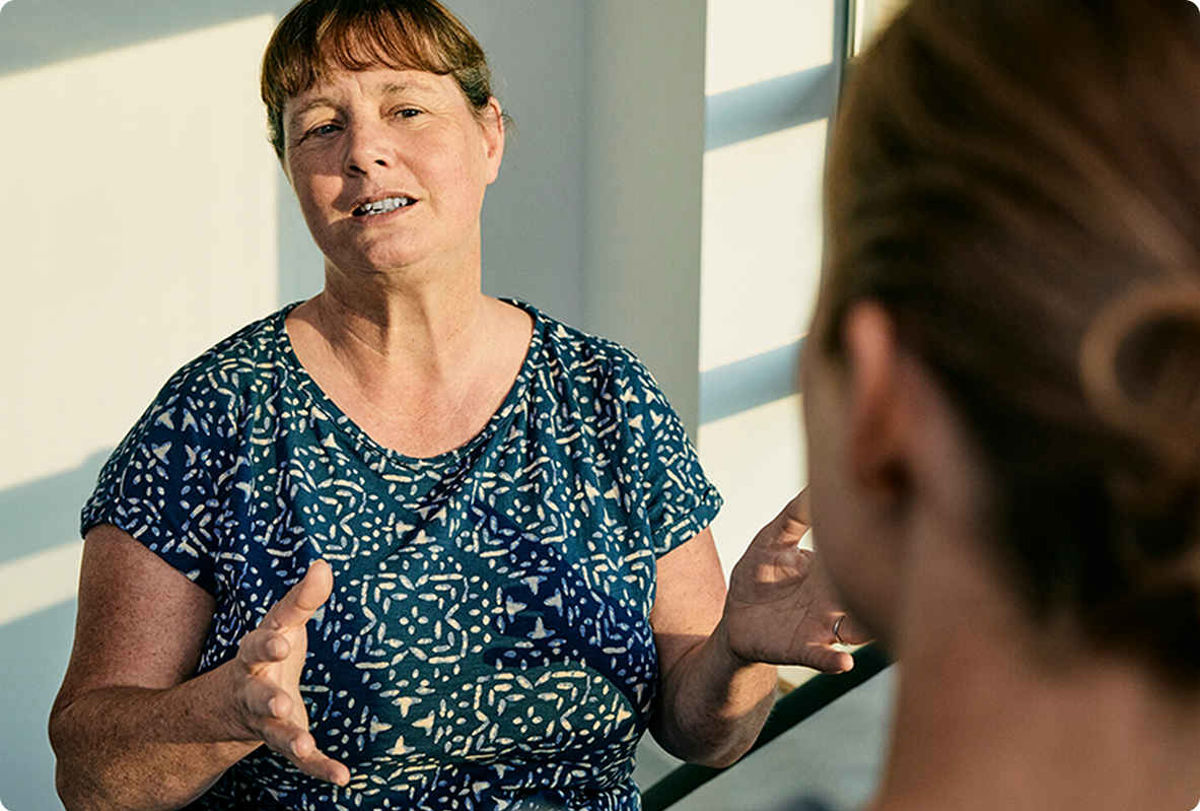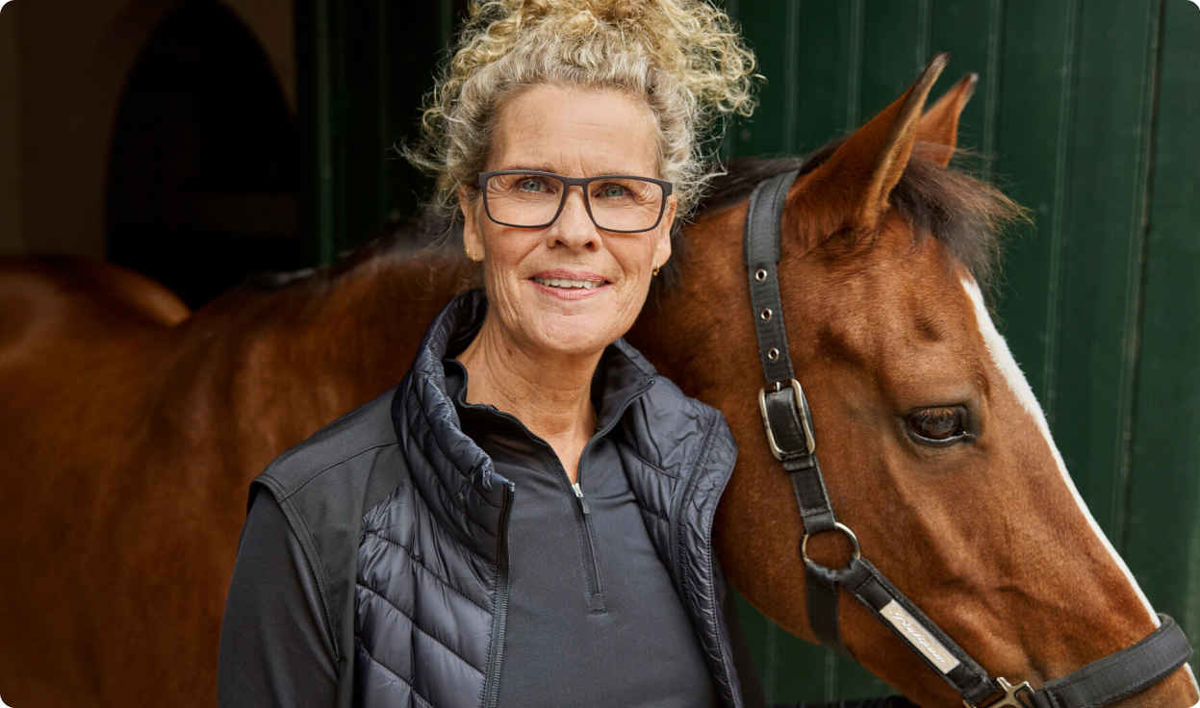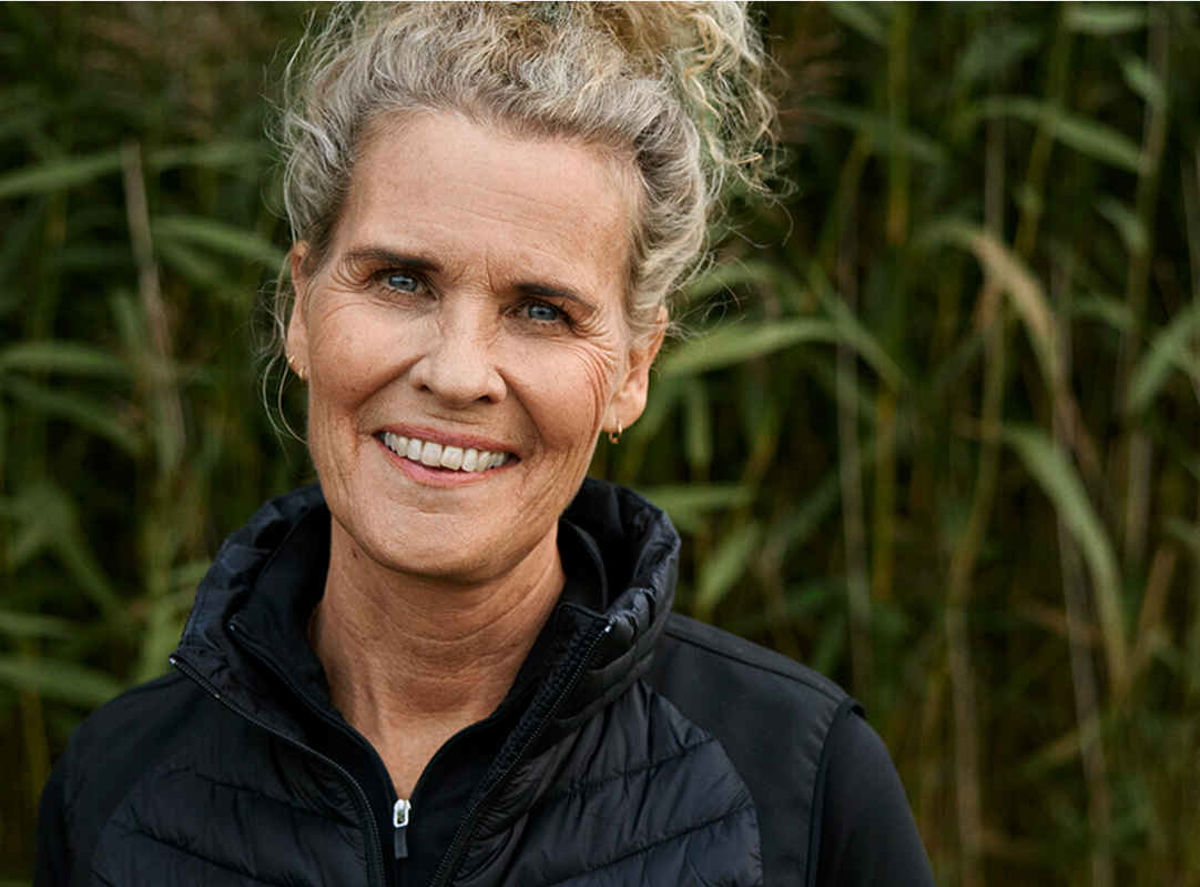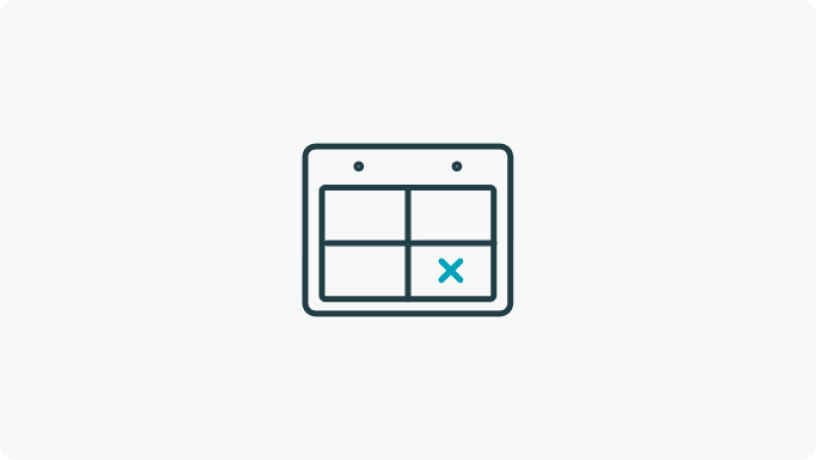
Personalised phone support, including routines, product selection and reimbursement.

When we talk about ‘bowel issues’, we are usually referring to chronic constipation and/or faecal incontinence, which is another way of saying that you experience accidental passing of solid or liquid stool. But no matter which words you use, bowel issues can have a devastating effect on your quality of life.2
This can show up in everyday life as a loss of independence along with feelings of embarrassment, anxiety and depression that can lead to social isolation.2
Learn more about the symptoms commonly associated with bowel issues.1

Have you experienced how difficult it can be to talk about bowel issues? It comes as no surprise. Many people experiencing faecal incontinence are too embarrassed to discuss it with their healthcare provider. Not only can this have a devastating effect on mental well-being, but it can also get in the way of finding effective treatment options.2
It takes courage to open up and talk about because faecal incontinence is highly stigmatised.3 But, as Carina’s story below shows, being able to talk about bowel issues is essential to shortening time to treatment and finding the relief you are looking for.
Carina, a mother of two, experienced bowel issues, including faecal incontinence, in 2012, years after giving birth. It took her another 11 years to find a combination of solutions that worked for her. Today, she advocates passionately for more open communication about bowel issues with the aim of shortening time to treatment and relieving the unnecessary pain and suffering of people living with bowel issues.
“It took 11 years, included lots of wrong turns, but now, with the right combination of treatments, my life has changed.”
Carina | Living with pelvic floor disorder

Dorte, a dental technician from Copenhagen, has Low Anterior Resection Syndrome (LARS) following rectal cancer. After surgery to reverse a temporary stoma, she found herself making 30 to 40 toilet visits a day, which had a profound impact on her quality of life. It took her years to find an effective combination of treatments. But now she can once again do what she loves: spending time at the nearby stables with her horse, Zydney.
“What I found really hard to accept was that, after cancer, I had won life, but I couldn’t live life.”
Dorte | Cancer survivor

Beating cancer and then developing bowel issues can feel like winning back a life that you can’t live to the full. For mothers dealing with pelvic floor and bowel problems years after childbirth, the connection can be hard to grasp. Bowel issues are tough to talk about, and it can take years to address them.
But help is at hand. Though you may understand the importance of discussing your symptoms, feelings of shame or embarrassment can make it difficult. Opening up is the key to getting the support you need and improving your health.
Our Bowel Check below may help the dialogue with your healthcare provider, bringing you one step closer to relief.

Living with pelvic floor disorders

Effective treatment and bowel management options are available. Initially, your healthcare provider may discuss your nutrition, fluid intake, and/or suggest certain medications to help either soften or harden your stool. Suppositories or digital rectal stimulation may also be considered.4 If unsuccessful, bowel irrigation (TAI) may be explored. Water is introduced into the bowel via a rectal catheter, helping with faecal incontinence and chronic constipation.4
Click the button below to explore various bowel management options and take the next step toward relief.

If you would like some help in working out what to say and how to say it to your healthcare provider, you are very welcome to talk to one of our Care advisors. Not only are they here for you, but they also have a wealth of experience in helping people with bowel disorders enjoy better conversations with their doctor. So, you can take the next steps to finding an effective solution – and relief.

Personalised phone support, including routines, product selection and reimbursement.

Emails and continence checks to make sure you are on top of bowel management Practical articles on subjects such as treatment options, lifestyle and real-life.

Practical articles on subjects such as treatmen options, lifestyle and real-life stories.
1. Sperber AD, Bangdiwala S|, Drossman DA, et al. Worldwide Prevalence and Burden of Functional Gastrointestinal Disorders, Results of Rome Foundation Global Study. Gastroenterology. 2021;160(1):99-114.e3.
2. Varma MG, Brown JS, Creasman JM, et al. Fecal incontinence in females older than aged 40 years: who is at risk? Dis Colon Rectum. 2006;49(6):841-51.
3. Putta S, Andreyev HJN. Faecal Incontinence: A Late Side-effect of Pelvic Radiotherapy. Clinical Oncology. 2005;17(6):469-77.
4. Magnuson FS, Christensen P, Krassioukov A, Rodriguez G, Emmanuel A, Kirshblum S, Krogh K, J Clin Med. 2023 Nov 7;12(22):6971.